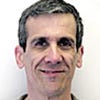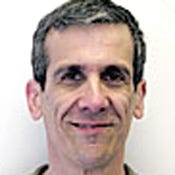NYSE And Nasdaq Power Up Electronic TradingNYSE And Nasdaq Power Up Electronic Trading
Both exchanges are buying key competitors to get hold of high-speed tech platforms

In a sign of how electronic trading is changing financial markets, the 213-year-old New York Stock Exchange plans to merge with Archipelago Holdings Inc., an all-electronic exchange founded eight years ago. Two days after that deal was unveiled last week, Nasdaq said it would buy Inet, Instinet Group Inc.'s E-trading platform, for $934 million.
The NYSE needs to be more global and innovative, to find new growth opportunities, and to lower its costs, NYSE CEO John Thain said in a conference call last week. The Archipelago management team "created Archipelago in a fairly short period of time," he said. "They'll help spur innovation at the New York Stock Exchange."
By tapping what Thain described as Archipelago's "high-speed, low-cost" all-electronic exchange, the NYSE will market a stock-listing alternative--to compete directly with the Nasdaq Stock Market--to list companies that don't qualify to go public on the NYSE today. It also will let the combined company offer traded products beyond equities, such as options and bonds.
NYSE members, Archipelago shareholders, and regulators need to approve the deal. Nasdaq needs approval by regulators and Instinet shareholders, but Reuters, which owns 62% of Instinet, backs the deal.
NYSE in one stroke cures several of its problems, says Bill Cline, managing partner for global capital markets at consulting firm Accenture. "The NYSE has acquired a great E-trading platform, extended its products into options and exchange-traded funds, went public, and eliminated a competitor," he says.
Chief technology officer Roger Burkhardt will lead NYSE's technology team.Photo by Stephen Aviano |
The companies predict $100 million in costs savings in 2005 and 2006 and another $100 million in 2007. The combined company won't attempt to merge the Archipelago electronic platform with the NYSE's systems, designed to support floor-based trading, Thain said. Steven Rubinow, Archipelago's chief technology officer, will continue to lead his technology group, and CTO Roger Burkhardt will lead the NYSE team. Analysts say there's room for both IT groups. "Steve Rubinow knows a lot about E-trading, and Roger Burkhardt knows a lot about floor trading," says Jodi Burns, a senior analyst at market-research firm Celent Communications.
The NYSE has moved slowly to add electronic trading, giving floor-based trading specialists tools for what's known as hybrid trading. Floor-based trading operations, in which specialists match buyers with sellers of particular stocks, will continue to be an important source of liquidity and trading volume, Thain said. "The floor really does add value."
But some people predict the Archipelago system will eventually process all electronic trades for the NYSE. The NYSE's electronic system, Direct Plus, processes only about 10% of the exchange's volume. The hybrid model espoused by Thain was a delaying tactic designed to hold the NYSE's critics at bay while it looked for an industrial-strength E-trading system, which it now has in Archipelago's ArcaEx, Burns says.
In acquiring Inet, Nasdaq will gain a robust, leading-edge trading platform. Electronic trading platforms such as Inet and ArcaEx compete in large part on how fast they can deliver information or complete a transaction, with the battle waged on subsecond differences. Instinet has "the leading technology on the planet," Bob Greifeld, Nasdaq's president and CEO, said in a conference call, "with response times of 5 milliseconds for incoming orders."
About the Author
You May Also Like






